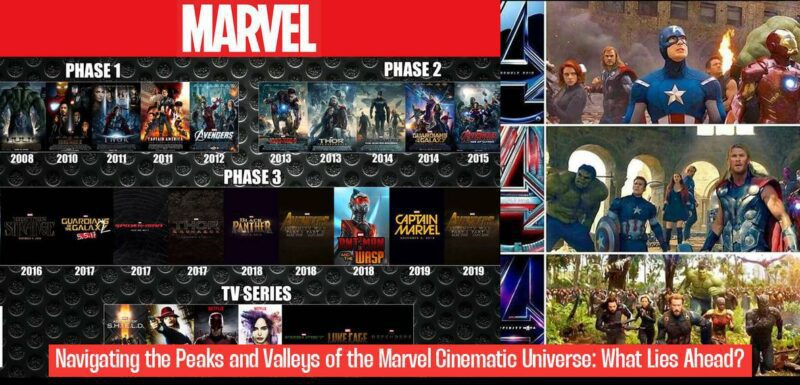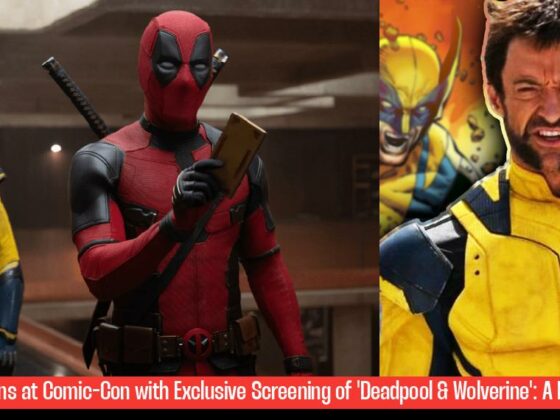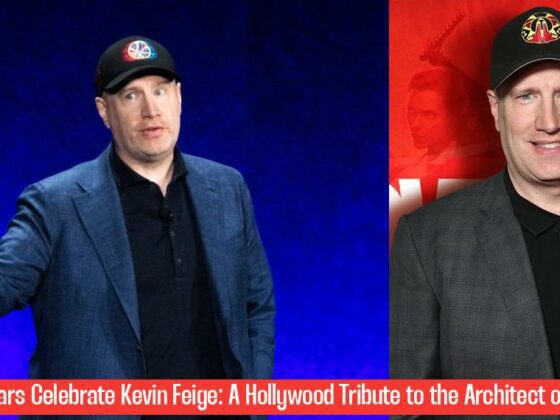The Marvel Cinematic Universe: A Rollercoaster Ride of Success and Struggle
The Marvel Cinematic Universe (MCU) has been a dominant force in popular culture for over a decade, captivating audiences with its superhero spectacles and intricate storytelling. However, in recent years, the MCU has faced growing criticism and a decline in audience enthusiasm. While the MCU’s early phases were marked by groundbreaking success, its current trajectory raises questions about the future of this once unstoppable franchise. This blog post will delve into the rise and fall of the Marvel Cinematic Universe, examining the factors contributing to its success and exploring the challenges it now faces.
The MCU’s journey began with the release of Iron Man in 2008, a film that revolutionized Hollywood’s approach to superhero storytelling. This film marked the start of Phase One, which culminated in the groundbreaking 2012 crossover film The Avengers. The film’s success proved that audiences were hungry for interconnected narratives and cinematic universes. The MCU’s commitment to building a world with recurring characters and storylines resonated with viewers, creating a sense of shared experience and anticipation. The success of Phase One laid the foundation for the MCU’s global dominance, paving the way for subsequent phases.
Phase Two, which began with Iron Man 3 (2013) and concluded with Ant-Man (2015), further solidified the MCU’s position as a cultural phenomenon. This phase introduced new heroes like Ant-Man and introduced compelling storylines that expanded the universe’s scope and depth. The introduction of new heroes and storylines helped to maintain audience interest and ensured that the MCU remained fresh and exciting. The MCU’s success was not limited to the big screen; it extended to television, with shows like Agents of S.H.I.E.L.D. and Daredevil further expanding the universe’s reach.
Phase Three, which began with Captain America: Civil War (2016) and concluded with Spider-Man: Far From Home (2019), marked the culmination of the MCU’s first saga. This phase witnessed the release of blockbuster films like Black Panther, Avengers: Infinity War, and Avengers: Endgame, which shattered box office records and solidified the MCU’s status as a cultural juggernaut. During this phase, the MCU achieved unprecedented success, captivating audiences worldwide with its epic storytelling and iconic characters.
However, the MCU’s dominance has faced growing challenges in recent years. While the franchise continues to release new films and television shows, some critics and fans argue that the MCU has lost its luster. Some argue that the MCU’s reliance on formulaic storytelling, with predictable plot twists and a focus on interconnected narratives, has led to a decline in quality. Others argue that the MCU’s obsession with continuity and its relentless pursuit of new characters and storylines has diluted the impact of its original characters.
The Decline of the Marvel Cinematic Universe: A Look at the Factors
The MCU’s recent struggles can be attributed to a number of factors. One of the most significant is the growing fatigue among audiences. The constant barrage of MCU content, coupled with the perceived sameness of its storytelling, has led to a sense of burnout among some fans. Audiences are becoming increasingly discerning, demanding more nuanced and original stories. The MCU’s reliance on familiar tropes and formulaic storytelling has made it difficult for the franchise to break free from the expectations it has created.
Another factor contributing to the MCU’s decline is the perceived lack of originality and creativity in its recent releases. Critics argue that the MCU has become overly reliant on past successes, recycling familiar storylines and characters. The franchise’s emphasis on interconnectivity has also made it difficult for individual films to stand out. The MCU’s reliance on interconnected narratives has created a sense of predictability, hindering the franchise’s ability to surprise and delight audiences.
The MCU has also faced criticism for its handling of diversity and representation. While the franchise has made strides in recent years, some argue that it continues to fall short in terms of diversity and inclusivity. The MCU’s recent release of The Marvels, a film that received overwhelmingly negative reviews, has further fueled these concerns, with many critics arguing that the film was a step backward for the franchise. The film’s disappointing box office performance underscores the growing dissatisfaction among audiences with the MCU’s current direction.
The MCU’s recent struggles are a testament to the challenges of maintaining long-term success in a rapidly evolving entertainment landscape. The franchise’s reliance on formulas, its obsession with interconnected narratives, and its perceived lack of originality have contributed to its decline. The MCU’s future is uncertain, but the franchise’s ability to adapt and innovate will be crucial to its survival.
The Future of the Marvel Cinematic Universe: A New Path?
While the MCU’s recent struggles have raised concerns about its future, it’s important to remember that the franchise has a proven track record of success. The MCU’s ability to adapt and evolve has allowed it to overcome previous challenges. The franchise’s future depends on its willingness to embrace new ideas and approaches. The MCU needs to break free from its formulaic storytelling and explore more diverse and original narratives. The franchise also needs to address the concerns surrounding diversity and representation.
Trending Now — Joe Biden Sparks Plastic Surgery Speculation with Unusual Appearance at Debate: Expert Analysis and Internet Reactions
Embracing Diversity and Inclusivity
The MCU’s future success hinges on its ability to embrace diversity and inclusivity. The franchise needs to create stories that reflect the diverse experiences of its global audience. The MCU needs to move beyond the traditional superhero archetype and introduce characters and storylines that challenge existing narratives. Representation matters, and the MCU needs to ensure that its stories and characters are reflective of the world we live in.
>> Is Deadpool Returning to Fortnite with the Help of Ryan Reynolds and Hugh Jackman?
Focusing on Quality Over Quantity
The MCU’s obsession with quantity has come at the expense of quality. The franchise needs to shift its focus from churning out content to creating high-quality stories that resonate with audiences. The MCU needs to be more selective in its projects, ensuring that each film or television show has a compelling narrative and unique perspective. The franchise needs to prioritize quality over quantity, prioritizing storytelling over spectacle.
Embracing Risk and Innovation
The MCU’s recent struggles have highlighted the need for risk-taking and innovation. The franchise needs to be willing to experiment with new genres, themes, and storytelling approaches. The MCU needs to embrace the unknown and challenge the conventions of superhero storytelling. The franchise needs to be willing to take risks to ensure that it stays relevant and engaging.
Conclusion
The Marvel Cinematic Universe has experienced a remarkable rise to global dominance, but its future is uncertain. The franchise’s reliance on formulas, its obsession with interconnected narratives, and its perceived lack of originality have contributed to its decline. The MCU needs to adapt and evolve to ensure its continued success. Embracing diversity and inclusivity, focusing on quality over quantity, and embracing risk and innovation will be crucial to the MCU’s future. The MCU’s ability to embrace change and evolve will determine its fate in the years to come.
What marked the beginning of the Marvel Cinematic Universe’s journey?
The Marvel Cinematic Universe’s journey began with the release of Iron Man in 2008, a film that revolutionized Hollywood’s approach to superhero storytelling.
How did Phase One of the MCU contribute to its global dominance?
Phase One of the MCU, culminating in the groundbreaking 2012 crossover film The Avengers, laid the foundation for the franchise’s global dominance by introducing interconnected narratives and cinematic universes that resonated with audiences.
What characterized Phase Two of the Marvel Cinematic Universe?
Phase Two of the MCU, which began with Iron Man 3 (2013) and concluded with Ant-Man (2015), introduced new heroes and compelling storylines that expanded the universe’s scope and depth, maintaining audience interest and keeping the franchise fresh and exciting.
Which phase marked the culmination of the Marvel Cinematic Universe’s first saga?
Phase Three, which began with Captain America: Civil War (2016) and concluded with Spider-Man: Far From Home (2019), marked the culmination of the MCU’s first saga with blockbuster films like Black Panther, Avengers: Infinity War, and Avengers: Endgame.



